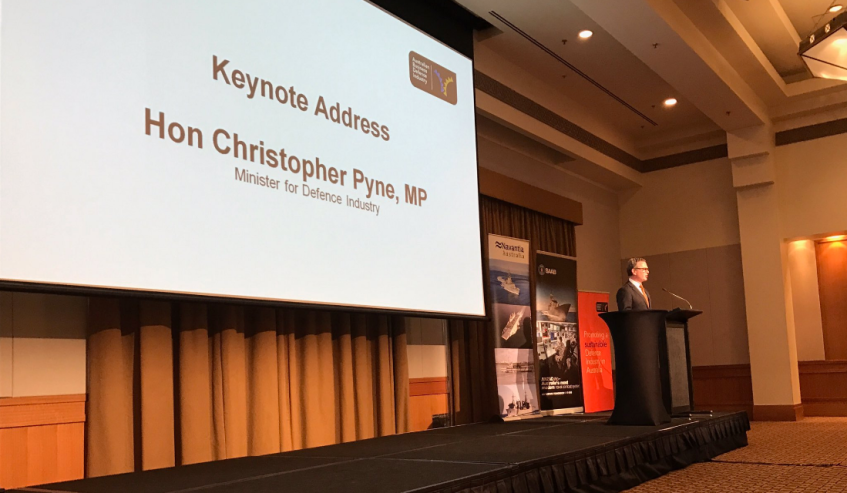The 2016 Defence White Paper’s 10-year $195 billion investment in Australia’s defence industry marked the beginning of a rejuvenation of the industry, and offered immense optimism and a ‘sky is the limit’ attitude to SMEs and primes. But Minister for Defence Industry Christopher Pyne has conceded there are limitations to just how much the industry can achieve.
Speaking at the Australian Business Defence Industry Sovereignty Forum, Minister Pyne offered a somewhat sobering reminder to industry that despite the new focus to the industry, Australia's defence industry has its limitations.
"For all our focus on defence, the government acknowledges we cannot do everything in Australia," said Minister Pyne.
"The nature of modern supply chains and manufacturing processes means it would be extremely difficult for Australia to achieve complete self-sufficiency.
"Even locally produced capabilities are almost all reliant on some components imported from foreign supply chains.
"At the same time we also have finite resources.
"This means we must carefully consider which industries we invest in and single out as key sovereign industrial capabilities."
But Minister Pyne is confident the Department of Defence and Centre for Defence Industry Capability's new Sovereign Industrial Capability Assessment Framework, which is replacing the Priority and Strategic Industry Capability Framework, will go a long way in ensuring the survival of sovereign industrial capabilities.
"With all this in mind, the government has directed Defence to develop a new framework, the Sovereign Industrial Capability Assessment Framework; a frame of reference that will be nimble and responsive to changes in our strategic environment, a frame of reference that will enable Defence to target and better manage our key industrial capabilities," the minister said.
Minister Pyne divulged some of the key elements the framework will include, with a strong emphasis on independent military capability and Australia's ability to conduct missions with or without help from the nation's allies.
"The framework, which is well advanced in its development, will focus on identifying the capabilities that are so important that they must be developed or supported by Australian industry because overseas sources will not provide the required security or assurances we need," explained Minister Pyne.
"Key elements you will see underpinning the Sovereign Industrial Capability Assessment Framework include the protection of intent – Australia's ability to employ military capability without divulging military intent.
"You will see independence of action – Australia’s ability to provide unimpeded use of military capability for the purpose of achieving a strategic objective. Interoperability limits and benefits will be key considerations – Australia’s ability to conduct missions with and alongside allies and coalition forces.
"Assurance of supply will be represented – Australia’s ability to access industrial capability without risk to security of guarantees of supply. Essential skills retention will be important – Australia’s ability to have specialist knowledge and ability essential to delivering industrial capability resident-in-country for reasons of security and supply assurance. And leveraging competitive advantage will also be key – the ability of a company with a competitive advantage able to offer scales in production that can be transformed locally, globally and, not least, for civilian application while maintaining the ADF’s position as a priority customer."


